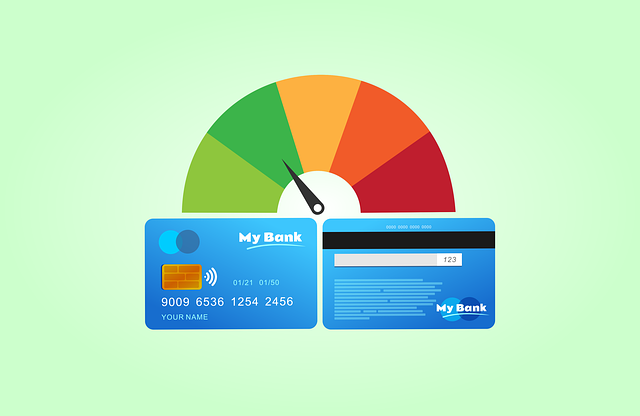Credit scores, ranging from 300-850, are crucial for accessing funding. They're influenced by payment history, debt levels, and types of credit used. Strong scores unlock better loan rates and terms, while low scores can lead to denials. Regularly monitoring reports, maintaining a diverse credit mix, and keeping debt low are key to improving scores over time, enhancing access to financial opportunities for significant goals. Even with low credit scores, tailored options exist; responsible behavior can demonstrate creditworthiness and increase approval chances.
Low credit scores can feel like a barrier to accessing funding, but understanding and improving your credit can open doors to better loan terms and increased financial opportunities. In this guide, we’ll explore the profound impact of credit scores on funding, from navigating the effects of poor scores to leveraging them for advantage. We’ll provide actionable strategies for monitoring and boosting your credit, ensuring you have the tools to access funding despite challenging scores. Learn how to take control of your financial future through savvy credit management.
- Understanding Credit Scores and Their Impact on Funding
- Monitoring Your Credit Scores: Taking Control
- Strategies for Improving Low Credit Scores
- Leveraging Credit Scores to Secure Better Loan Terms
- Accessing Funding Despite Challenging Credit Scores
Understanding Credit Scores and Their Impact on Funding

Credit scores are a crucial indicator of an individual’s financial health and play a significant role in their ability to secure funding for various purposes, such as loans or mortgages. These scores, often ranging from 300 to 850, are calculated based on a person’s credit history, including payment records, debt levels, length of credit history, types of credit used, and new credit inquiries. Understanding the impact of credit scores is essential for anyone seeking funding. A good credit score increases the likelihood of getting approved for loans with better interest rates and terms. Conversely, low credit scores can lead to denied applications or less favorable loan conditions.
Monitoring and leveraging your credit scores are vital steps towards securing funding. Regularly checking your credit reports from major credit bureaus helps identify errors or fraudulent activities that could be dragging down your score. Additionally, maintaining a mix of different types of credits (e.g., credit cards, auto loans, mortgages) and keeping debt levels low relative to available credit can significantly improve your credit scores. Over time, these efforts can enhance your chances of accessing funding with better terms for important financial milestones.
Monitoring Your Credit Scores: Taking Control

Monitoring your credit scores is a crucial step in taking control of your financial health and improving access to funding. Regularly checking your credit reports allows you to identify any discrepancies or errors that may be negatively impacting your credit score. This proactive approach empowers you to address issues promptly, such as disputing inaccurate information or correcting calculation mistakes. By leveraging this knowledge, you can work towards raising your credit score over time, making it easier to secure loans at competitive rates.
Additionally, monitoring credit scores helps individuals understand the impact of their financial decisions on loan applications. Lenders often use credit scores to gauge an individual’s reliability and determine terms for funding. Low credit scores can result in higher interest rates or even denial of certain loans. By staying informed about your credit standing, you can make necessary adjustments to boost your score, ensuring better access to funding options when needed.
Strategies for Improving Low Credit Scores

Low credit scores can significantly impact your ability to secure funding for various purposes, from taking out a loan to renting an apartment. However, there are several effective strategies to improve your credit scores and enhance your financial prospects. Regularly monitoring your credit reports is a crucial first step; errors or inaccuracies in these reports can drag down your scores. Once identified, dispute any incorrect information with the credit bureaus to ensure your records are accurate.
Leveraging positive payment history is another powerful way to boost credit scores over time. This includes making timely payments on all your accounts, as even a few late payments can have a detrimental effect. Building a history of responsible borrowing and repayment demonstrates to lenders that you’re a reliable borrower. Additionally, keeping credit card balances low relative to your available credit limit can positively impact your scores, showcasing good financial management.
Leveraging Credit Scores to Secure Better Loan Terms

Understanding how your credit scores influence funding opportunities is a significant step towards achieving better loan terms. Credit scores play a pivotal role in the lending process, acting as a snapshot of your financial health and reliability to lenders. They are calculated based on various factors such as payment history, outstanding debt, length of credit history, new credit inquiries, and types of credit used. A higher credit score generally indicates lower risk to lenders, which can result in more favourable loan conditions, including lower interest rates and higher borrowing limits.
When aiming to secure funding, leveraging your credit scores becomes essential. Monitoring your credit reports regularly allows you to identify errors or discrepancies that may be dragging down your score. Correcting these issues can significantly improve your creditworthiness. Additionally, building a strong credit history over time by consistently making timely payments and managing debt responsibly will positively impact your credit scores. This, in turn, enhances your ability to access funding at better terms, empowering you with more financial options and control.
Accessing Funding Despite Challenging Credit Scores

Despite challenging credit scores, accessing funding is not impossible. Many financial institutions and lenders understand that life circumstances can lead to adverse credit ratings. They offer various options tailored for individuals working on improving their credit scores. One common approach is to start by monitoring your credit scores regularly. This enables you to track progress and identify any discrepancies or errors in your reports.
Leveraging your credit scores effectively involves demonstrating responsible financial behavior. Making timely loan repayments, keeping credit card balances low, and avoiding new hard inquiries on your credit report can significantly impact your credit scores positively. These actions show lenders that you are a reliable borrower, increasing your chances of approval for funding, even with low credit scores.






